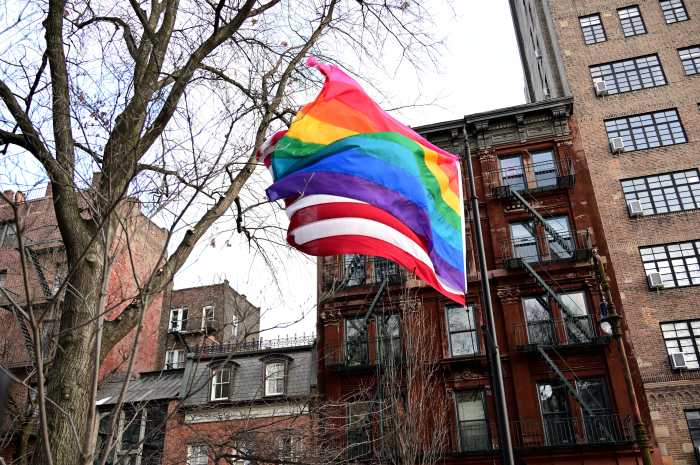The US Supreme Court has recognized a “ministerial exception” to shelter religious organizations from having to comply with anti-discrimination laws when selecting “ministers.” According to the court, this is necessary to preserve the free exercise of religion for churches and other religious bodies, and it sounds simply logical to keep government civil rights enforcers from dictating the selection of ministers by churches.
But the courts have taken this concept several steps further. For example, the Supreme Court has applied this exception to let religious schools discriminate against applicants or employees whose jobs have some relationship to their religious employer’s religious mission, even if the job does not require ordination or specialized religious training, and in some rulings the court has applied the “ministerial” label to teachers of non-religious subjects at religious schools.
A Seattle-based three judge panel of the US Court of Appeals for the Ninth Circuit has taken this “ministerial exception” into a new realm in its Aug. 5 ruling in McMahon v. World Vision Inc., holding that the position of a customer service representative for a social services agency that describes itself as a “Christian ministry dedicated to sharing the gospel of Jesus Christ through humanitarian outreach to children and families around the world who are poor and underserved” will be considered a “minister” and thus not covered by anti-discrimination laws.
The plaintiff, Aubry McMahon, is an out lesbian married to her same-sex spouse and, by now, the birth mother of their child. She also identifies as a Christian and was eager to work as a customer services representative for World Vision, responding to an advertisement they placed describing the position. She had a phone screening interview with a World Vision “talent acquisition partner,” which covered her background and interest in World Vision and her “comfort level with job ‘requirements’ like ‘making inbound and outbound calls’ and ‘upselling’ World Vision programs.” The interview also covered her “computer experience and skills, her background in working with technology, and her comfort level and experience using virtual meeting rooms,” since she was applying for a job that would be performed remotely, not on the physical premises of World Vision.
The World Vision interviewer also described the organization’s “Christian commitment” and asked McMahon to describe her personal Christian faith, which she did. When asked whether she was “willing and able to comply with the Standards of Conduct,” she responded, “I’m aligned, yes!” She then received a verbal offer of employment on Jan. 4, 2021, followed by a formal written letter offering her a “full-time position of Donor/Customer Service Representative Trainee.”
McMahon responded with an email: “Hey there. I just have a quick question! My wife and I are expecting our first baby in March and I wanted to see if I would qualify for any time off since I’ll be a new employee? I will be the one having the baby so I just wanted to check to see if any time would be allowed off. If not, no worries, thanks so much!”
World Vision then decided to rescind its offer of employment, because of its “Biblical marriage policy,” which it concluded made McMahon unable to comply with its Standards of Conduct, which prohibit “sexual conduct outside the Biblical covenant of marriage between a man and a woman.” Of course, McMahon did not become pregnant through sexual conduct, but World Vision does not recognized same-sex marriages and is not cool with lesbian sex. The job offer was rescinded on Jan. 8, 2021.
MacMahon sued for discrimination on the basis of sex, sexual orientation, and marital status. The sex and sexual orientation claims were raised under Title VII of the US Civil Rights Act of 1964; all three claims were also raised under the Washington Law Against Discrimination which, unlike the federal law, expressly forbids discrimination on the basis of marital status.
World Vision moved for summary judgment, which was initially granted by District Judge James L. Robart, who accepted World Vision’s claim that it would violate a “church autonomy doctrine” that has been described by some courts as an interpretation of the First Amendment’s Free Exercise of Religion clause. World Vision also invoked various provisions of Title VII and the Washington law which it claimed to insulate its employment decisions from judicial review, and specifically claimed that the ministerial exception should cover this case.
McMahon moved the court to reconsider its ruling, arguing that World Vision had acted under a “facially discriminatory hiring policy” so the court could resolve the case using “neutral principals of law” without becoming entangled with issues of religious doctrine. Judge Robart then changed his mind and granted summary judgment to McMahon, concluding that World Vision rescinded her job offer under a policy that facially discriminated based on sex, sexual orientation, and marital status, as she had alleged in her complaint.
In his decision for the Ninth Circuit panel reversing Judge Robart’s decision, Senior Circuit Judge Richard C. Tallman concluded that the nature of the customer service representative (CSR) job at World Vision — which all parties conceded was a religious organization — is an integral part of carrying out World Vision’s religious mission. He observed that CSRs “are required to attend ‘devotions’ — religious meetings where teams come together ‘for reading of Scripture and prayer for the daily work,’” and all the CSRs rotate in leading “devotions.” Some CSRs lead chapel services, although that is not required. They receive nine to 11 weeks of training covering religious topics and are expected to incorporate this information into their function of communicating with donors and others as a voice of World Vision.
Although World Vision is basically a social services organization, the context of work, found the court, is the carrying out of a religious mission, and its CSRs are an important part of this. The court pointed to Supreme Court decisions that have adopted a broad view of the ministerial exception in evaluating claims by religious school teachers who are not tasked with teaching religious subjects. The very broad understanding of the ministerial exception as extending beyond those who are ordained or “called” in their mission by a congregation can be found in opinions written by Justice Samuel Alito, the most fervent “free exercise” exponent on the Supreme Court, whose dissent in the Obergefell same-sex marriage case focused heavily on how the Court’s decision would stigmatize people of religious faith who could not accept same-sex marriage. At an early stage in the Kim Davis litigation, Alito issued a statement calling Davis a “victim” of the Obergefell decision.
In light of the Supreme Court rulings, perhaps it is not surprising that this Ninth Circuit panel ended up ruling in favor of World Vision, even though the three-judge panel was made up entirely of judges appointed by Democratic Presidents Bill Clinton and Barack Obama. Ironically, the only Republican judicial appointee involved with this case is Judge Robart, an appointee of President George W. Bush, who ruled in favor of McMahon.
McMahon is represented by Michael Subit of the Seattle law firm Frank Freed Subit & Thomas LLP. Lawyers from the Becket Fund for Religious Liberty represent World Vision. The case has attracted amicus briefs from a wide range of organizations as well as state attorneys general on both sides of the issue.





































